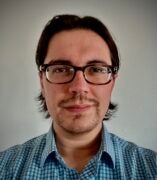
Phillip A. Boda, PhD
Assistant Professor
Contact
Building & Room:
3424 ETMSW
Office Phone:
Email:
Please contact me by email.
About
I focus on Inclusion and Measurement in Science, Technology, Engineering, and Mathematics (STEM).
Notable Honors
2015, Emerging Leader in Education, Phi Delta Kappa
Education
Postdoc - University of Illinois Chicago
Postdoc - The Learning Partnership
Postdoc - University of California, Berkeley
Postdoc - Stanford University
PhD - Teachers College, Columbia University
EdM - Teachers College, Columbia University
BS - Bowling Green State University